EU extends sanction relief on Iran to November 24
Updated: 2014-07-22 09:53
(Xinhua)
|
||||||||
BRUSSELS - The European Union (EU) has extended the suspension of restrictive measures on Iran over its nuclear programme until November 24, the Council of EU Monday said in a statement.
Under the sanction relief specified in the Joint Plan of Action, the Islamic republic could continue parts of its international oil trade, which is the pillar of the country's economy.
"The suspension allows: the provision of insurance and transport in relation to Iranian crude oil sales to current customers, the import, purchase or transport of Iranian petrochemical products, as well as trade in gold and precious metals with the Iranian government and its public bodies,"the statement said.
Meanwhile, in the duration of next four months, the increase in thresholds for authorising financial transfers to and from Iran also remains in force, according to EU's decision.
EU foreign policy chief Catherine Ashton and Iranian Foreign Minister Mohammad Javad Zarif last Saturday announced jointly to extend the Iranian nuclear talks for another four months till November 24, as stakeholders still have "significant gaps on core issues."
Meanwhile, the Joint Plan of Action, known as the interim deal which should have expired by July 20, has also been extended till November 24.
Iran and the six world powers "reaffirmed that they will continue to implement all their commitments described in the Joint Plan of Action in an efficient and timely manner," Ashton said earlier in Vienna.
The interim deal approved by Iran and P5+1 last November in Geneva, was designed to buy time for negotiations. Under the deal, Iran would suspend some sensitive nuclear activities in exchange for limited sanction relief.
There have been multiple rounds of negotiations between Iran and the so-called P5+1 -- the five UN Security Council permanent members: the US, UK, France, China, Russia, plus Germany.
But in recent months, the talks for a final deal stalled as the two sides are still far apart on some core issues, such as Iran's future enrichment capacity.
Iran's supreme leader Ayatollah Ali Khamenei said last Tuesday that Iran needs 190,000 separative work units (SWUs) for uranium enrichment, much higher than the West's anticipation under a comprehensive agreement.
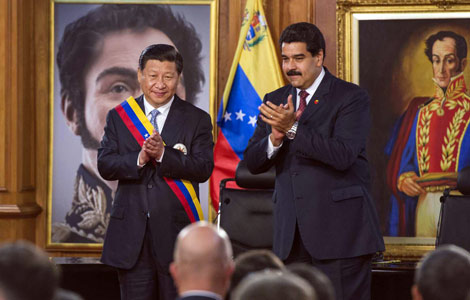
 President Xi honored in Venezuela
President Xi honored in Venezuela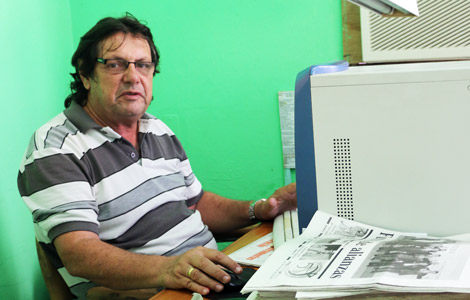
 A bike ride helps Cuban editor fit into Chinese society
A bike ride helps Cuban editor fit into Chinese society
 Chinese students fall for Cuba
Chinese students fall for Cuba
 Osmani Castillo — Cuban chef in China
Osmani Castillo — Cuban chef in China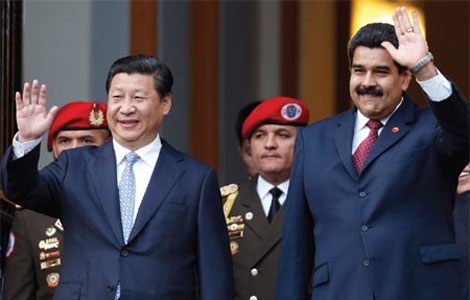
 Xi's visit takes China-Venezuela ties to a 'strategic' level
Xi's visit takes China-Venezuela ties to a 'strategic' level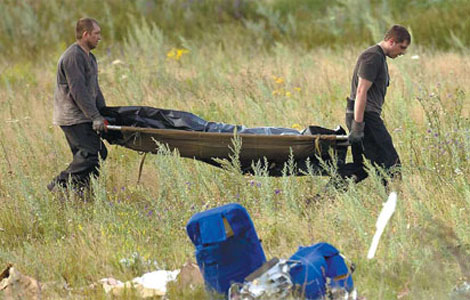
 Separatists take black boxes, bodies
Separatists take black boxes, bodies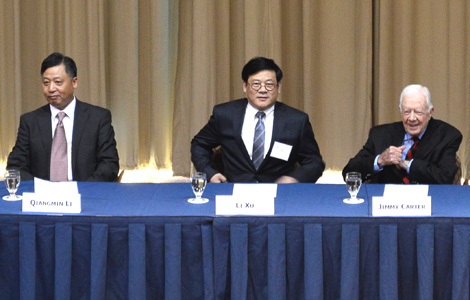
 Former president Carter lauds US-China relations
Former president Carter lauds US-China relations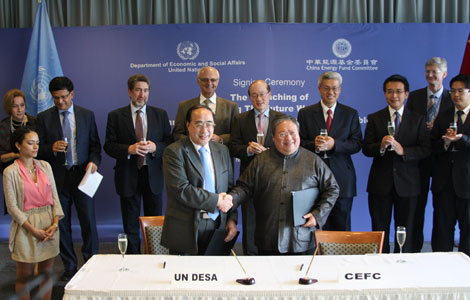
 UN energy program to lift China fund
UN energy program to lift China fund
Most Viewed
Editor's Picks

|

|

|

|

|

|
Today's Top News
RMB developing quickly as major world currency
China, Cuba to further advance ties
Chinese get to know Cuba through salsa
Caracas seeks to lure more Chinese tourists
Xi arrives in Venezuela for state visit
Chinese students rank highest in financial literacy test
Chinese President Xi leaves for Venezuela
Black boxes of MH17 under 'control': rebels
US Weekly

|

|






